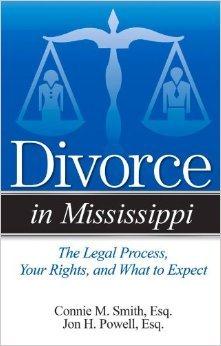1. What are the three deeds used in Mississippi to convey real estate?
a) Warranty Deed - The Seller (Grantor) warrants to the Purchaser (Grantee) that the Seller has good marketable title to the real estate conveyed and will defend such title if someone disputes or claims title to the real estate.
b) Special Warranty Deed - The Seller (Grantor) warrants only that Seller (Grantor) has done nothing to affect the marketable title to the real estate conveyed. The Seller (Grantor) makes no warranty for the preceding owner’s title.
c) Quitclaim Deed - The Seller (Grantor) conveys whatever interest he/she owns in the real estate to the Purchaser (Grantee). Seller is making no warranty to the Purchaser (Grantee).
2. What is a Deed of Trust?
A Deed of Trust is used to grant to the Bank or Mortgage Company (Lender) a lien on the real estate to secure Purchaser’s indebtedness to Lender. A Deed of Trust is often called a Mortgage.
3. What is Owner’s Title Insurance?
An Owner’s Title Insurance policy is an indemnity contract of insurance which insures the Purchaser’s title to the real estate to be merchantable and without any title defects except for those exceptions specifically listed in the title insurance policy.
4. What is Lender’s Title Insurance?
A Lender’s Title Insurance policy is an indemnity contract of insurance which insures the Lender’s Deed of Trust to be a first lien on the real estate subject only to certain exceptions approved by the Lender. This is also known as a “Mortgagee” Title Insurance Policy.
5. Why do I need an Attorney to represent me in a real estate sale and purchase?
For most people, the purchase of their home is the largest single monetary investment they will make. An Attorney can review the sale and purchase contract to make sure you understand what is the actual agreement between Seller and Purchaser regarding the sale and purchase. An Attorney will ensure that you as Seller or Purchaser perform your obligations under the contract and that you understand what your obligations are under the contract. An Attorney can review the title report to determine that you are getting merchantable title, free and clear of all liens except those you knowingly agree to. An Attorney can review all closing documents and determine whether such documents accurately represent what you agreed to do with both Seller and your Lender.
6. What is a Closing Statement (HUD-1)?
A Closing Statement is called a HUD-1 and shows the purchase price, the earnest money and all expenses of closing, both of the Seller and Purchaser. The HUD-1 also shows which expenses are being paid by the Seller and which are being paid by the Purchaser. The HUD-1 reflects the economics of the sale and purchase.
7. What is a Seller’s Disclosure Statement?
Mississippi law requires a seller of residential real estate to provide the Purchaser a disclosure statement. This document specifically requires Seller to tell a Purchaser everything the Seller knows about the house and any known defects or problems. This document has to be prepared by the Seller and signed by the Seller.





